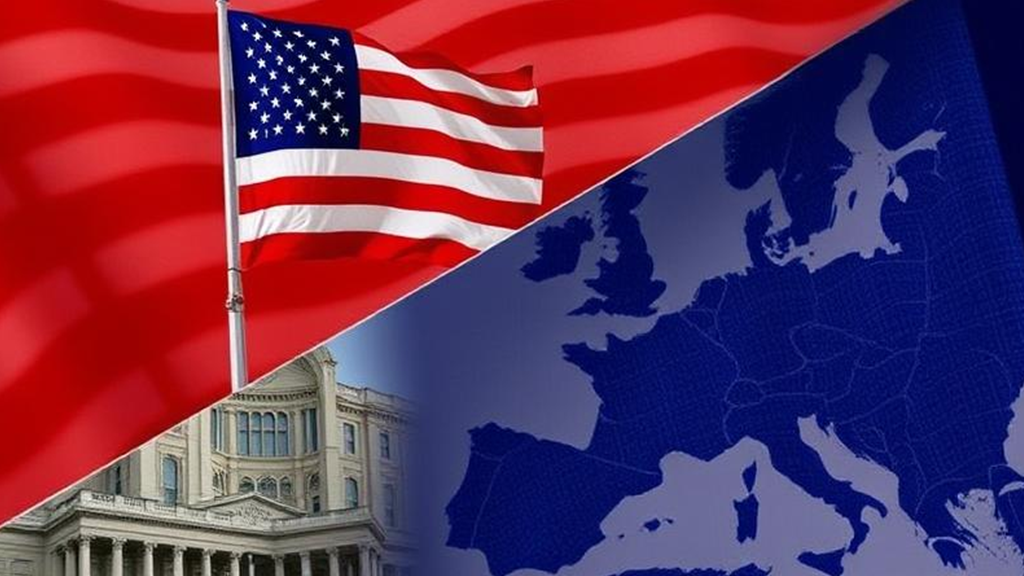
Why Skills-First Leadership Is Replacing the Ivy League Playbook in the C-Suite
The old prestige pyramid—where Ivy League degrees and blue-chip consulting backgrounds paved the way to the CEO seat—is cracking.

February 11, 2025: The European Union is preparing retaliatory tariffs against the United States in response to newly imposed 25% U.S. tariffs on steel and aluminum imports. European officials have warned that the move violates international trade agreements and could escalate into a broader economic dispute.
EU policymakers are reportedly considering targeted countermeasures on American exports, including agricultural products, motorcycles, whiskey, and industrial goods. These tariffs would mirror previous retaliatory actions in response to Trump’s 2018 steel tariffs, which triggered European levies on $3.2 billion of U.S. exports. The European Commission has stated that it will apply “firm and proportionate countermeasures” to protect European industries and workers.
Transatlantic tensions over trade have been rising, with European leaders frustrated by what they see as protectionist policies that disadvantage European firms. The EU argues that the U.S. tariffs artificially inflate steel and aluminum prices, increasing costs for European manufacturers and creating an uneven playing field in global markets.
U.S. officials justify the tariffs as necessary for protecting American jobs and national security, arguing that cheap foreign steel—especially from China—harms domestic production. However, European leaders counter that the U.S. unfairly penalizes allies while failing to address Chinese overproduction directly.
Negotiations between the U.S. and the EU are ongoing, with both sides seeking to avoid a full-blown trade war. However, European officials have warned that retaliatory tariffs could take effect within weeks if no agreement is reached.
This dispute occurs at a time when global supply chains remain fragile, and businesses on both sides of the Atlantic are concerned about rising costs and market instability. European trade groups have urged a diplomatic resolution, warning that escalating tariffs will ultimately harm consumers, businesses, and economic growth.
With U.S.-EU trade exceeding $1 trillion annually, the outcome of this conflict could have far-reaching consequences for industries, jobs, and global economic stability. Whether diplomacy prevails or the dispute worsens will depend on negotiations in the coming days.

The old prestige pyramid—where Ivy League degrees and blue-chip consulting backgrounds paved the way to the CEO seat—is cracking.

Loud leaders once ruled the boardroom. Charisma was currency. Big talk drove big valuations.

But the CEOs who make history in downturns aren’t the ones with the deepest cuts

Companies invest millions in leadership development, yet many of their best executives leave within a few years. Why?

The most successful business leaders don’t just identify gaps in the market; they anticipate future needs before anyone else.

With technological advancements, shifting consumer expectations, and global interconnectedness, the role of business leaders

Following a distinguished Law Enforcement career Joe McGee founded The Securitatem Group to provide contemporary global operational specialist security and specialist security training products and services for private clients, corporate organisations, and Government bodies. They deliver a wide range of services, including complete end-to-end protection packages, close protection, residential security, protection drivers, and online and physical installations. They provide covert and overt investigations and specialist surveillance services with a Broad range of weapons and tactical-based training, including conflict management, risk and threat management, tactical training, tactical medicine, and command and control training.

Jay Wright, CEO and Co-Owner of Virgin Wines infectious energy, enthusiasm, passion and drive has been instrumental in creating an environment that encourages talent to thrive and a culture that puts the customer at the very heart of every decision-making process.

Fabio de Concilio is the visionary CEO & Chairman of the Board at Farmacosmo, a leading organization dedicated to mental health and community support services. With a deep commitment to identifying and meeting customer needs, Fabio ensures that high standards are maintained across the board.

Character Determines Destiny – so said Aristotle. And David CM Carter believes that more than anything else. For David, it has been numerous years of research into codifying Entelechy Academy’s 54 character qualities that underpin everything he stands for as a leader and teacher.


Leave us a message
Subscribe
Fill the form our team will contact you
Advertise with us
Fill the form our team will contact you